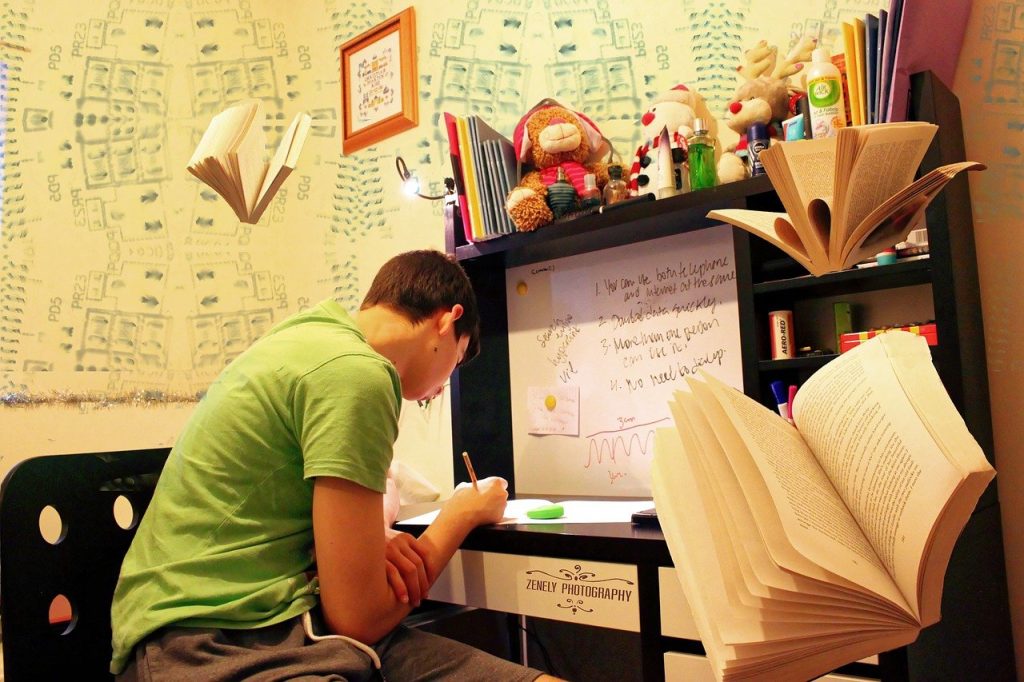Exams are just around the corner, which means that soon everything that will somehow increase the chances of a good grade will be used.
Instead of re-reading the textbook, re-read our scientific recommendations – they are more effective than a plot of a student’s books, a teacher’s love spell and a prayer to the lucky number of the audience.
Sleep in hand
1. Of course, the temptation is great to sit at a notebook all night, but science urges you to sleep. It is during sleep that the information received the day before is consolidated.
In experiments on rats.scientists showed that during slow sleep. The same groups of neurons are excited in the brain as during the training that rats were engaged in the day before.
That is, in order to better remember Aristotle’s aphorisms, it is best to act like a rat – to go to bed early. In a dream, the brain will once again scroll through everything it has heard about the philosopher, and then will lead you to success on the exam.
Assignments
2. American scientists conducted experiments not on rats, but on students, after which they confirmed that sitting on assignments all night is a bad idea. Side effects of a sleepless night are manifested in the form of delayed reaction and a tendency to blurt out mistakes everywhere.
The most effective strategy would be to read difficult passages right before bed and lie down until midnight in the hope that the brain does not confuse what needs to be transferred to long-term memory – Facebook feed or pages of lectures.
Food for brain
1. For breakfast before the exam, scientists from Boston University School of Medicine offer you scrambled eggs. The fact is that eggs are rich in choline, a B vitamin. Choline, according to research, improves memory and slows down the aging of the brain. But it is the aging of the brain that prevents examiners from successfully responding.
2. The American Academy of Food and Dietetics gets upset when you give up oatmeal. Whole grain cereals contain slow carbohydrates and healthy micronutrients, they give the brain energy, which should be enough to make it through the exam.
Your table
3. What is on your table should be generously sprinkled with curry seasoning. It contains turmeric, which is highly praised by scientists from the Institute of the Brain of the Russian Academy of Sciences (St. Petersburg). Turmeric, despite the name, strengthens memory and is a good prevention of Alzheimer’s disease.
4. Turmeric on the table can be overpowered by the smell of mint. Peppermint improves concentration, so you can stick a couple of leaves in your buttonhole in the hope that it will impress the teacher.
5. If you are going to show off your mental abilities, you cannot do without omega-3 fatty acids. A study published several years ago by the British Journal of Nutrition reported that college students who didn’t neglect walnuts showed more impressive reasoning abilities than their peers who didn’t.
Even richer in Omega-3 nuts are fish: salmon and tuna. Before the exam, a few fish oil capsules should definitely decorate your meal.
Drink water before the exam
6. First, students who drink water before the exam, pass it to 10% better than their friends dehydrated. Secondly, after fish oil and turmeric, you just really want to drink.
7. And for dessert it is better to get some chocolate. Scientists at the University of South Australia, hiding candy wrappers, claim that those who eat chocolate at least once a week perform better on various cognitive tasks than those who modestly give up chocolate.
Researchers from Northern Arizona University in the United States continued to study the problem and stated that it is best to take chocolate with 60 percent cocoa: it is the most potent in increasing concentration.
What else to do before you are called
1. It turns out that you need to jump not after the exam, but before. Even if you look a little provocative while running or cycling around a building, science will be on your side. Just 30 minutes of cardio can improve your memory and reduce the stress of the examiner’s friendly face.
Cardio will delight the brain with a cocktail of hormones, including serotonin, dopamine, and norepinephrine. It is an excellent composition that has a beneficial effect on attention, perception, motivation and learning ability.
2. Music playing through your headphones is a recognized stress reliever. Before the exam, let Wolfgang Amadeus play the role of music. In 1993, cognitive scientist Francis Rauscher and his colleagues studied the effect of Mozart’s sonatas on experimental students.
During the experiments, the students showed a temporary improvement in spatial-temporal thinking. In other experiments, the rats who listened to Mozart performed better through the maze.Than the rats who were admirers of other composers.
Take up meditation
3. Take up meditation. A person who is not by hearsay familiar with the lotus position, during meditation. Turns off the brain from unnecessary noise and unloads the working memory as much as possible.
Psychology professor Cyan Beilock in his book “The Moment of Truth” tells about one study: in its course, guys for whom Ohm is not only a unit of electrical resistance, showed exceptional ability to concentrate.
List of your positive qualities
4. In addition to not knowing the subject on the exam. A good way to raise it is to write a list of your positive qualities right in front of the audience door.
5. Chewing gum is a great help in the exam. She can not only attach cribs under the desk, but also improve her concentration. At the risk of incurring the ire of the teacher, scientists suggest. That she somehow makes the areas of the brain more active that contribute to better attention.


